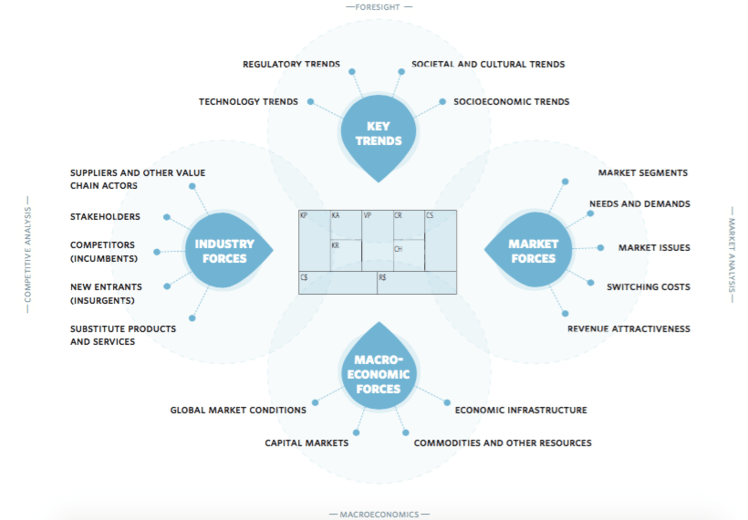Designing For Self-Interest
What would you say is the lifeblood of every successful social enterprise/inclusive business?
We’d like to think that the most important factor was “charity” or “ethics” or “intent” or “a shared vision for a better world”.
Nope.
If you’re financially minded you might say cashflow, which is pretty close.
I’d argue the real answer is: Self-Interest.
I’ve seen many, many companies who had great impact and a strong vision, that no longer exist.
However, I don’t know of any successful social enterprises that don’t cater brilliantly to the self-interest of each stakeholder.
And when I talk with seasoned entrepreneurs and investors, they tend to say the same thing.
Stakeholder is a terribly bland word, but I use it here to collectively refer to the staff, customers, partners and donors of the social enterprise.
All people who have the ability to make or break the business, and all of whom need to be kept happy.
Every time we engage a stakeholder’s self-interest, we’re in a relationship that is predictable.
Predictable is good – it removes the anxiety and paralysis that comes from uncertainty.
Ethics and charity?
They’re powerful and unpredictable, as anyone who has ever written a series of grant applications will know.
Goodwill is fleeting, but as they say, you can always count on self-interest.
This isn’t cynicism – I’m not complaining that donors or customers are selfish.
Quite the opposite – that self-centeredness can work in our favour, if we design for it.
At B4D, we build social enterprises in the developing world, a notoriously difficult process.
You know who are our best customers?
The ones who are looking to gain something from the new enterprises’ existence.
Maybe they’re doing this to fulfil a company mandate.
Maybe they’re appeasing the local government.
Maybe they’re doing it to rehabilitate their image.
Maybe they’re trying to create employment so that the locals are occupied (and therefore don’t start riots).
That doesn’t sound particularly noble, but that’s the real reason behind their interest in social enterprise.
And you know what?
That makes them patient, engaged, and willing to put in the cash to do things properly.
Which means they’re the type of people who actually get things done.
Now, the companies who are interested in social enterprise because of their ethics?
They show up late, they don’t reply to emails, they won’t pay for anything, won’t commit to a timeline, and ultimately won’t put in the hard yards to build something remarkable.
And why would they?
If you get your thrills, PR and self-satisfaction from talking about social enterprise, why would you want to commit to funding anything?
Social enterprises that work are the ones that are designed to keep each stakeholder happy.
Say it’s a vegetable growing co-operative:
Farmers are happy because they’ll receive higher incomes.
Buyers are happy because they get better/closer/cheaper crops.
Donors are happy because it ticks a tonne of their boxes, and more cost-effectively than the alternatives.
Sponsor companies are happy because this fulfils one of their mandates, and is cheaper than handing out money every single year.
Everyone wins.
Everyone is happy.
Everyone looks noble on the surface.
But each group has a deal-breaker, something which, if removed, would force them to withdraw from the arrangement.
And funnily enough, the deal-breaker generally isn’t to do with the nobility of the project.
The nice part is, these deal-breakers are predictable, and people will happily tell you what they are if you ask them.
· Farmers want cash crops they can actually sell
· Buyers want to fill gaps in their supply chain
· Donors want good stories and efficient impact metrics (for themselves or their supporters)
· Sponsor companies want to keep their communities happy, so that they can get on with their core business.
That’s why social enterprise is so closely linked to the field of Value Proposition Design.
To be successful in the long term, we need to solve a problem for each of our stakeholders; creating a gain or removing a pain.
Please feel free to disagree:
Have a think about the social enterprises you know and see if self-interest plays a role.
Sure they have good stories and positive impacts, but when it comes to the make-or-break factors, are they driven by the heart or by self-interest?
I go to STREAT for meetings because they have good coffee and a nice atmosphere.
We use STREAT as caterers because their food is actually good – particularly the chocolate espresso brownie.
I buy Thankyou Water because it’s cheaper than Mt Franklin, Thankyou hand soap because it looks sophisticated and smells nice, and their Hand Sanitizer because I like the bottle.
I don’t purchase their cereal because I don’t like the flavours.
We got rid of our social enterprise cleaners because they did a bad job and cut corners.
It was a nice idea, it just didn’t pan out.
I saw Keep Cups for years and never wanted one because I didn’t want to drink my coffee out of a plastic cup.
Now I have a glass one and it’s beautiful, so I use it daily.
In our office we have a display of Who Gives A Crap toilet paper because it looks great.
At home I go for a different brand because I can’t be bothered ordering something like that online, and because I think it’s actually a superior product.
Maybe it’s just me.
Maybe I am the only one with these weird, selfish opinions.
But I bet I’m not.
Here’s another way of looking at it:
To ignore the self-interest of your stakeholders is arrogance.
Refusal to think about things from their perspective is short sighted and inconsiderate.
It’s the belief that people should support your cause because
a) It’s noble
b) You said so
c) They somehow owe you
People do not “owe you” because you’re building something socially positive.
I haven’t seen many examples of this approach working in the long term.
It does at first, because nobility, agreeability and personal favours can generate some initial momentum.
But when times get tough (and cashflow becomes an issue), your stakeholders will drop the non-essentials in order to preserve what is most important to them.
Unfortunately, charitable partnerships aren’t essential.
If you want to stick around, design your social enterprise so that it caters to their interests as well as yours.











